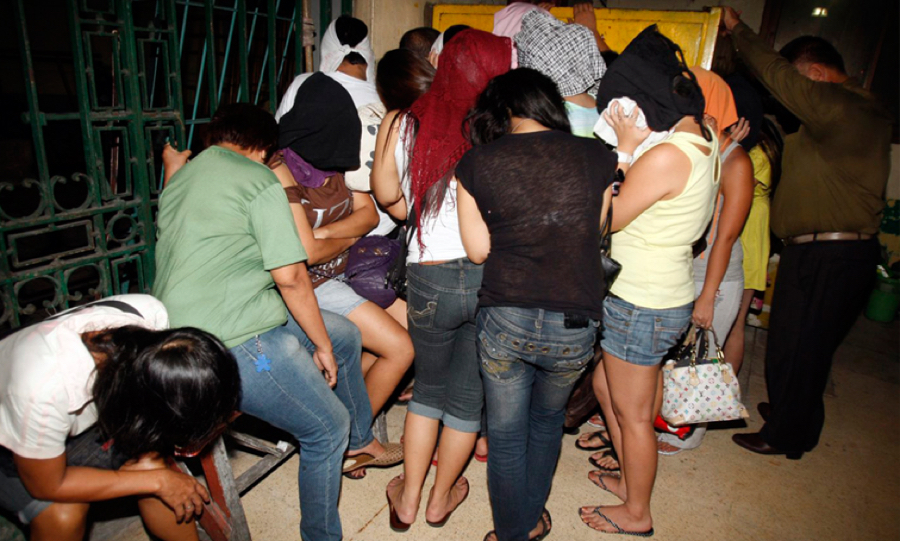
A veteran lawmaker, who has been asking the government to intensify its campaign against human trafficking, has filed a bill pushing for greater awareness among the youth on the dangers posed by human trafficking in the light of the case of Mary Jane Veloso.
Veloso was the Overseas Filipino Worker (OFW) who was sentenced to death in Indonesia after falling prey to a drug syndicate.
Valenzuela City Congressman Win Gatchalian, a majority member of the House committees on Basic Education and Culture and on Higher and Technical Education, filed House Bill No. 5709 to be known as the “Human Trafficking Preventive Education Program Act”.
Related News: PNoy commended for saving Mary Jane Veloso from firing squad
Under HB 5709, the Inter-Agency Council against Trafficking (IACAT) will make possible the creation of the Human Trafficking Preventive Education Program, which seeks to educate the youth about basic labor rights and international and local human trafficking, among others.
“The Program will arm members of the youth sector from all walks of life with the information they need to protect themselves from becoming victims of trafficking,” explained Gatchalian.
The IACAT, in cooperation with state education institutions, shall implement a school-based program to accomplish the goal to educate the youth.
It will also implement a community-based program covering out-of-school youth to reach the same goal. Implementation of the program in conflict-affected areas shall be prioritized.
In drafting HB 5709, Gatchalian noted that most Filipina domestic helpers going abroad are either high school graduates or dropouts and many were known to suffer abuses. Some are duped to become unwitting drug mules like Veloso.
Related News: Gatchalian wants LGUs activated vs human trafficking
He pointed out that the government could have prevented their unfortunate situation if they were made aware of the harsh realities of illegal recruitment and human trafficking when they were still studying in high school.
“The lack of understanding and awareness of human trafficking continues to facilitate a culture of impunity for the perpetrators, and a burden of injustice for the victims. The State must assume a larger role in stopping trafficking at its source – by educating potential victims about the dangers of trafficking and instructing them on how to seek protection from the government,” said Gatchalian.
OFWs have become the highest income generator for the country, whose personal remittances in 2014 set an all-time high for the Philippines at $26.93 billion. The contribution of OFWs to the country’s economy, however, does not seem to be reciprocated by the government’s support and attention to their plight.
Data from the Philippine Statistics Authority (PSA) showed around 1.072 million were female OFWs in 2012, largely 25 to 29 years old and are laborers and unskilled workers. On the other hand, 1.148 million were male OFWs, largely 45 years old and over and are plant and machine operators and assemblers, as well as trade and related workers.
The Philippine Drug Enforcement Agency or PDEA had reported 710 Filipinos languishing in jails in different parts of the world (in Asia, in the US, and in the Middle East) for acting as drug couriers of big-time drug smuggling rings. In China alone, 205 Filipinos are already imprisoned for allegedly being “drug mules” and 28 of them are in death row.
Related News: Gatchalian sets up help desk for abused OFW
Most of the past drug couriers have generally came from impoverished backgrounds and according to the PDEA, there is a current preference of international drug syndicates for young professionals or office workers with presentable personalities since are less likely to be suspected as “drug mules”.
These unwitting victims are lured by promises of free travel, free iPad units, and hefty allowances. Women comprise 62 percent of detained drug mules while 38 percent are men. They are recruited through the Internet and social networking sites, like Facebook and Twitter, still according to PDEA.
Figures from the PSA show that only 22.3 percent of women in the country attained college education, 21.3 percent completed high school, and 11.9 percent finished elementary.
Statistics for men is bleaker. Slightly more than 18 percent attained college education, 20.1 percent who completed high school, and 12.1 percent completed elementary.
The Philippines remains to be categorized in the Tier 2 in the 2014 Trafficking in Persons Report by the US State Department, meaning the government has yet to meet the minimum standards for the elimination of trafficking.
Slightly more than 1,800 human trafficking victims have been assisted by the Department of Social Welfare and Development or DSWD nationwide last year, but that number may not reflect the true volume of cases as many victims do not report to authorities. (Monica Cantilero/R. Burgos)


